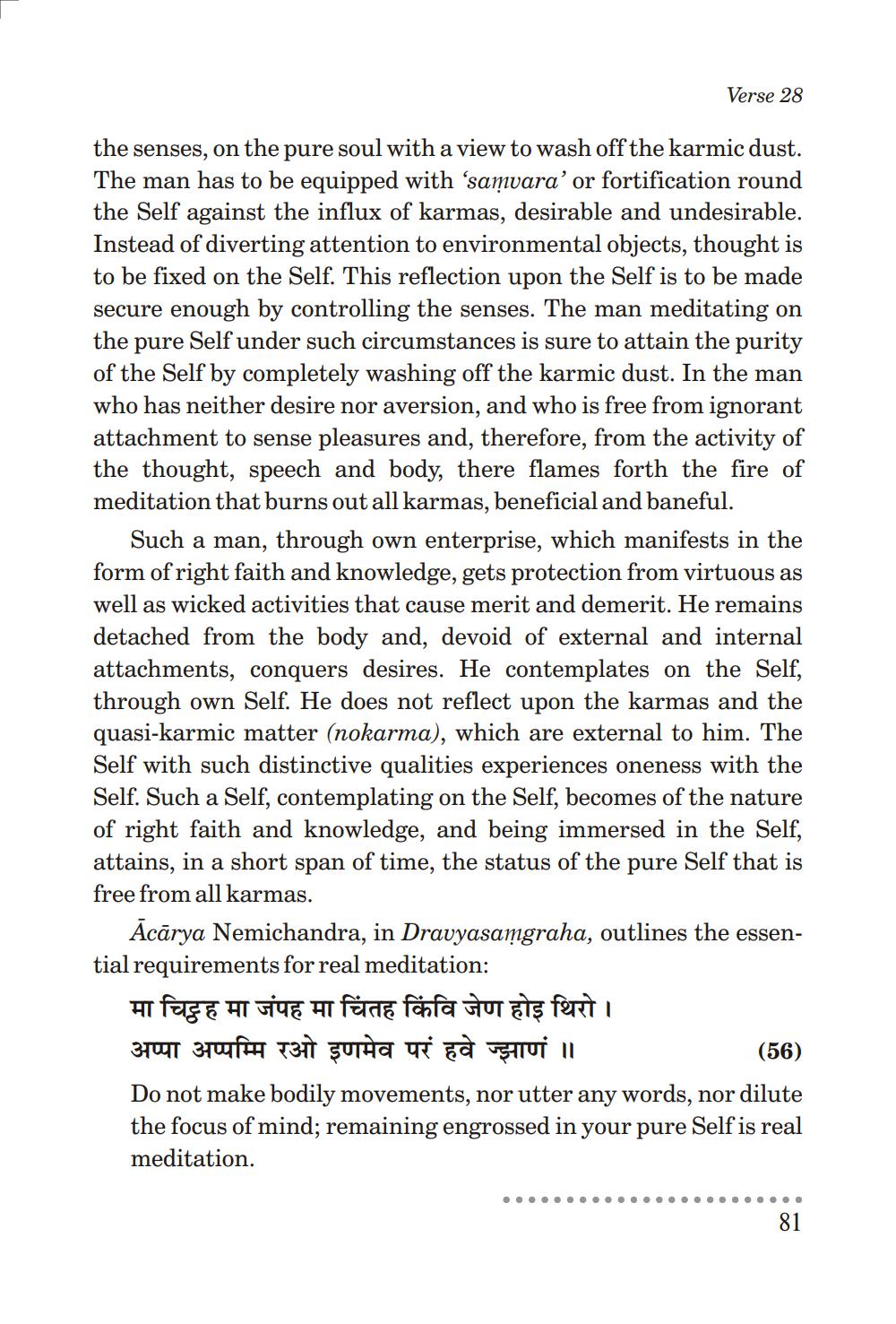________________
Verse 28
the senses, on the pure soul with a view to wash off the karmic dust. The man has to be equipped with 'samvara’or fortification round the Self against the influx of karmas, desirable and undesirable. Instead of diverting attention to environmental objects, thought is to be fixed on the Self. This reflection upon the Self is to be made secure enough by controlling the senses. The man meditating on the pure Self under such circumstances is sure to attain the purity of the Self by completely washing off the karmic dust. In the man who has neither desire nor aversion, and who is free from ignorant attachment to sense pleasures and, therefore, from the activity of the thought, speech and body, there flames forth the fire of meditation that burns out all karmas, beneficial and baneful.
Such a man, through own enterprise, which manifests in the form of right faith and knowledge, gets protection from virtuous as well as wicked activities that cause merit and demerit. He remains detached from the body and, devoid of external and internal attachments, conquers desires. He contemplates on the Self, through own Self. He does not reflect upon the karmas and the quasi-karmic matter (nokarma), which are external to him. The Self with such distinctive qualities experiences oneness with the Self. Such a Self, contemplating on the Self, becomes of the nature of right faith and knowledge, and being immersed in the Self, attains, in a short span of time, the status of the pure Self that is free from all karmas.
Acārya Nemichandra, in Dravyasamgraha, outlines the essential requirements for real meditation:
मा चिट्ठह मा जंपह मा चिंतह किंवि जेण होइ थिरो। अप्पा अप्पम्मि रओ इणमेव परं हवे ज्झाणं ॥
(56) Do not make bodily movements, nor utter any words, nor dilute the focus of mind; remaining engrossed in your pure Self is real meditation.
81




